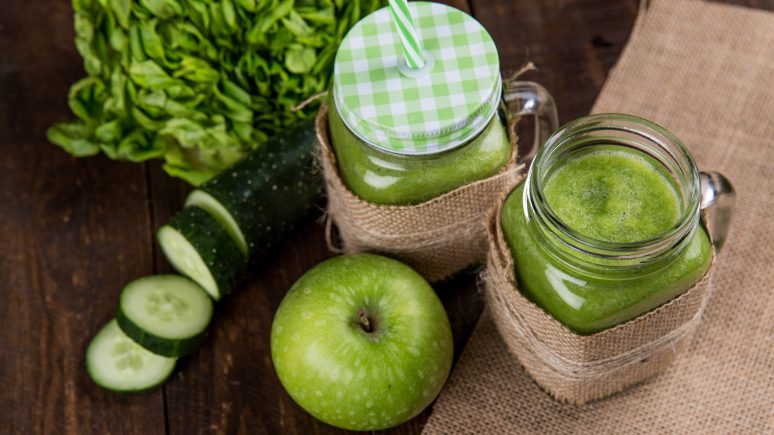Introduction
There is a chance you heard that people need to detox once in a while to clean the body from toxins and heal it. Proponents of detox diets believe that we need this cleanse because a modern person’s life abounds with pollution, junk food, cigarette smoke, alcohol, and others.
Juice cleanse, also called juice fast, is a short-term detox diet based on drinking fruit and vegetable juices. Advocates of this detox diet state that it can help you clean the body from toxins, help you lose weight, and boost immunity and gut health. However, the listed claims are not research-based.
Key points
Juice cleanse is a one to three-day detox diet during which your only energy sources are fruit and vegetable juices. It is worth mentioning that juice fast often involves preparation and exit phases.
You can drink purchased or made at home juices and water while practicing a juice cleanse. In addition, people with higher calorie requirements can add smoothies and some whole, healthy foods. The last include fruits, vegetables, gluten-free grains, tofu and other soy products, beans, and legumes.
In the course of a juice cleanse, you can make juices from various fruits and vegetables, including:
- leafy greens
- cucumbers
- carrots
- celery
- peppers
- cabbage
- beets
- apples
- oranges
- lemons
- ginger
In addition, you can use nut milk to prepare your meals.
Contraindications
Children, pregnant or breastfeeding women, older adults, those with diabetes or chronic kidney, liver, or gallbladder issues, and people with a history of eating disorders or disordered eating shouldn’t try a juice cleanse diet. In addition, individuals with irritable bowel syndrome (IBS) can experience many side effects. Finally, people with a compromised immune system and heart diseases should also bypass this diet.
It is worth mentioning that if you take blood-thinning drugs, it is essential to consult with the doctor to discuss whether it is safe for you to try a juice cleanse diet.
How to avoid possible nutritional deficiencies
A juice cleanse diet is a highly restrictive eating pattern. Therefore, you can develop nutritional deficiencies while following it. Nutrients at risk include fiber, protein, healthy fats, vitamin A, vitamin B-1 (thiamine), vitamin B-12, and iron. Since variants of a juice cleanse allow the consumption of healthy foods, you can include some of the following foods in your diet to fulfill the body’s requirements for these nutrients:
- fiber: berries (strawberries, raspberries, etc.), fruits (apples, bananas, pears, etc.), vegetables (broccoli, Brussels sprouts, beets, carrots, etc.), nuts, beans, lentils, oatmeal, whole grains, chia seeds;
- protein: poultry, lean meats, fish, shellfish, milk, dairy products, eggs, beans, lentils, tofu, nuts, seeds, quinoa, amaranth, oatmeal;
- healthy fats: fatty fish (salmon, herring, sardines, tuna), eggs, cheese, avocado, dark chocolate, extra virgin olive oil, olives, seeds, nuts, full-fat yogurt;
- vitamin A: leafy greens, red bell peppers, tomatoes, sweet potatoes, mangoes, cantaloupes, papaya, eggs, milk, beef liver, salmon, fish oil;
- vitamin B-1 (thiamine): fish, pork, beans, lentils, whole grain bread and pasta, sweet potato, sunflower seeds, oatmeal, barley;
- vitamin B-12: beef, poultry, eggs, fish (sardines, trout, tuna), shellfish, dairy products, nori, fortified cereals;
- iron: dark chocolate, spinach, broccoli, pumpkin seeds, legumes, tofu, fish, shellfish, red meat, organ meats, turkey;
As the juice cleanse diet restricts almost all foods, it is difficult to ensure you get enough essential nutrients. However, you can contact your doctor and discuss possible supplements you may need to fulfill your body’s requirements.
Tips on improving your dieting experience
Preparation and exit phases are essential for a successful juice cleanse experience. Since this diet is highly restrictive, simply jumping in and out of it can cause excessive stress for the body.
Pre-cleanse
Three days before starting a juice fast, switch to low-inflammatory whole foods. Focus on eating fruits (excluding mangoes and bananas), vegetables, beans, legumes, gluten-free whole grains, seeds, nuts, fish, chicken, eggs, unrefined oils, and fermented foods. In addition, stay hydrated by drinking water (you can also try water with lemon) and herbal teas.
It is also good to include light physical activity in your daily routine.
Post-cleanse
When you break a juice fast, it is essential to incorporate solid foods gradually. Start by adding smoothies, fruits, vegetables, and soaked nuts and seeds on the first day. Then you can include soups, protein smoothies, salads, and healthy bars. You can start eating animal proteins and gluten-free grains on the third day. It is essential to chew the food thoroughly to aid digestion.
During the exit phase, it is advisable to eat juices, vegetables, fruits, berries, soaked nuts and seeds, unrefined oils, fermented foods, and antioxidant-rich foods.
In addition to changing your diet, stay active and drink enough water to boost your overall health.
Conclusions
A juice cleanse is a short-term detox diet that primarily involves the consumption of juices for several days. While eating various fruits and vegetables is generally beneficial for your health, a juice cleanse is excessively restrictive. It excludes many food groups that provide essential nutrients for proper body functioning. In addition, juices lack fibers that aid in the beneficial effect of fruits and vegetables.
It is not recommended to follow a liquid diet without medical supervision.
Overall, a juice cleanse diet has many potential risks that overcome claimed benefits. Notably, the last doesn’t have any scientific basis. If your goal is health improvement, you can try the Mediterranean or Nordic diets.














Leave a Reply
You must be logged in to post a comment.